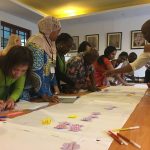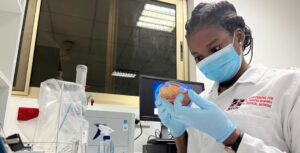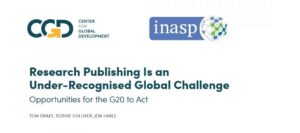Study finds gap between knowledge and practice in sexual health behaviour among factory workers in Sri Lanka
More and more people are aware of modes of transmission of Sexually Transmitted Infections (STIs) and ways to be protected from them with increased media proliferation in recent years. However, the increased awareness alone does not guarantee safer sexual behaviour, a study in Sri Lanka has shown.
The study which was carried out to assess knowledge, attitude and behaviour related to STIs and HIV/AIDS among factory workers in the Seethawaka Export Processing Zone in Sri Lanka has found that the majority of the respondents had a satisfactory level of knowledge on HIV and STIs but a very low proportion exhibited safe sexual behaviour.
For example, while 85% of the 480 respondents involved in the research were aware of HIV testing, fewer than 10% of respondents actually did the testing. Likewise, over one-third of the study population participated in sex with a non-regular partner and a large proportion did so without using a condom.
“The more alarming finding of the study was the prevalence of male-to-male sexual activity (15%) with very low condom use,” says the lead author of the article, Dr Manjula Rajapakshe. “This is worrying as anal sex carries the highest risk of HIV transmission.”
She says that this issue needs to be addressed in future interventions for factory workers and condoms should be promoted, stressing the high risk of HIV transmission through anal sex.
Likewise, the study, published in The Sri Lanka Journal of Sexual Health and HIV Medicine and made available online free of cost via the SLJOL platform, has shown that a big proportion of people in the area studied had a negative attitude towards people living with HIV. More than half the respondents expressed negative attitudes towards people living with HIV. Ironically, although a large chunk of the respondents resorted to unsafe sexual behaviour, a high level of stigma against people living with HIV was present. The respondents said that people with HIV should not be given a job, should not be given the right to marry and have children, should not be given equal rights. Likewise, over half the respondents said they would not work together, live in the same house or eat together with a person that has HIV.
“As the study shows that the attitude towards people living with HIV/AIDs (PLHIV) was significantly associated with HIV-related knowledge of the factory workers, it is important to further increase the HIV-related knowledge among this group to reduce their negative attitudes towards PLHIV,” says Dr Rajapakshe.
“Furthermore, the traditional methods of awareness programmes that target only on increasing knowledge [should change] to more focused methods of behaviour change communication (BCC) strategies, both to reduce stigma against people living with HIV/AIDs and to promote safer sexual behaviour. Training of peer leaders and update their knowledge and skills with retraining would be a sustainable intervention in this regard,” she says.
The full text of Rajapakshe, R.W.K.M.D. & Weerasinghe, G., (2016). Knowledge, Attitudes and Behaviours related to Sexually Transmitted Infections and HIV/AIDS among factory workers in Seethawaka Export Processing Zone, Avissawella, Sri Lanka appears on Sri Lanka Journal of Sexual Health and HIV Medicine. 2, pp.14–19.
About the Journal
The Sri Lanka Journal of Sexual Health and HIV Medicine is a peer-reviewed journal which publishes a range of articles related to sexually transmissible infections, HIV medicine, sexual heath and related prevention and programme sciences. It is the official journal of the Sri Lanka College of Venereologists.
About SLJOL
Sri Lanka Journals Online (SLJOL), a part of INASP’s Journals Online, is a database of journals published in Sri Lanka, covering the full range of academic disciplines. The objective of SLJOL is to give greater visibility to the participating journals and to the research they convey. It is managed by the National Science Foundation of Sri Lanka and was developed in collaboration with INASP. There are now 76 journals on SLJOL listing 9159 articles.
About INASP
Founded in 1992, INASP is an international development organization working with a global network of partners in Africa, Latin America and South Asia. In line with the vision of research and knowledge at the heart of development, INASP works to support individuals and institutions to produce, share and use research and knowledge, which can transform lives.
INASP’s approaches are based on the core pillars of capacity development, convening, influencing and working in partnership. INASP promotes equity by actively addressing the needs of both men and women across all our work and addressing issues of power within the research and knowledge system. INASP has projects in 28 countries, supporting all aspects of research and knowledge systems, from facilitating the provision of information to researchers to helping parliamentarians and civil servants to use research and evidence in policy making.
Disclaimer: Research published in journals hosted on the SLJOL platform is selected by the journals in accordance with their own editorial processes and criteria. INASP and the National Science Foundation of Sri Lanka provide hosting and guidance on good practices but are not involved in selection of research.
For further information
Thakur Amgai, Communications Consultant, INASP
Email: tamgai@inasp.info
Dr Sangita Shrestha, Communications Officer, INASP
Email: sshrestha@inasp.info

 Next Post
Next Post


